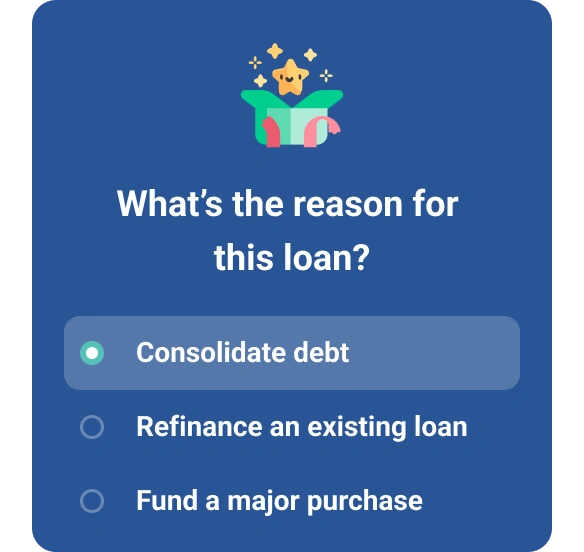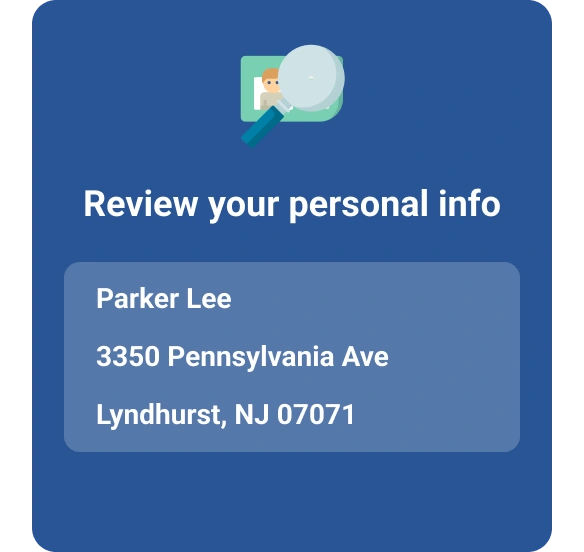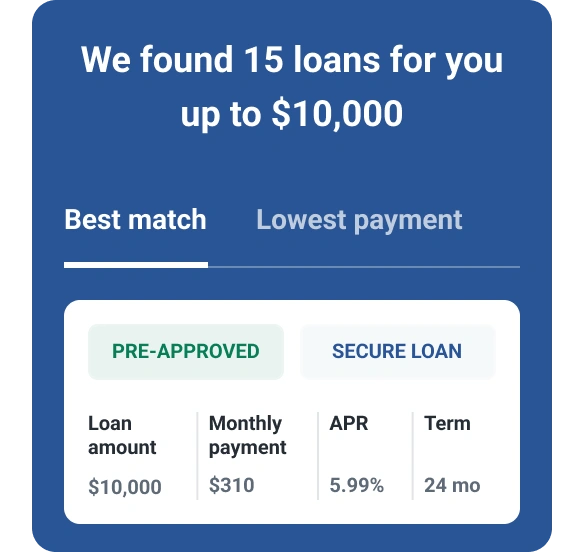8 Things Not to Use a Personal Loan For
Quick Answer
You should avoid using a personal loan to pay for college tuition, investments, basic living expenses, vacation, discretionary purchases and gambling, as well as a down payment and the costs associated with starting a business.

Personal loans are an effective financing tool for consolidating high-interest debt, funding a home renovation project or achieving another financial goal. They typically have fixed payments, fast funding and lower interest rates than other forms of credit.
You can use personal loans for nearly any legal purpose. But as the old saying goes: "Just because you can, doesn't mean you should." In other words, many common usages for personal loans may not be in your best financial interests. You should avoid using a personal loan for the following purposes:
1. Paying College Tuition
Before you cover your college tuition with a personal loan, you should exhaust all funding options through scholarships, grants and federal student loans. Federal student loans are typically a better option than personal loans because:
- Federal student loans usually come with lower interest rates than personal loans. Undergraduate students can take out a federal student loan with a 5.5% fixed interest rate (for loans disbursed between July 1, 2023 and July 1, 2024), whereas the average interest rate on a 24-month personal loan is 12.35%, according to November 2023 Federal Reserve data.
- You don't need a credit check for most federal student loans. The only federal student loans requiring a credit check are PLUS loans, which are designed for graduate or professional students and parents who take out student loans for their undergraduate dependents.
- You may qualify for a subsidized loan, depending on your financial need. In this case, the U.S. Department of Education covers your interest costs while you're in school at least half time, during your six-month grace period after leaving school and throughout any loan deferment periods.
- You may receive additional benefits. Federal student loans offer access to student loan forgiveness programs and income-driven repayment plans (IDRs). If you're facing short-term financial difficulty, you may qualify for deferment and forbearance options, which some, but not all, private student loan lenders also offer.
After exhausting your federal student loan options, you might consider filling in the financial gaps with a private student loan. Generally, you can apply for private student loans through a bank, credit union, state agency or school.
2. Investing
Investing usually isn't the best use of personal loan funds. Even if you can generate a substantial return on your investment, the interest rates you must pay will cut into or even negate your returns. And, the longer you pay on your loan, the more interest you'll pay—something to think about since personal loans typically have repayment terms between one and five years.
What will you do if your income changes, the market underperforms or another unfortunate circumstance arises? It's wise to have a backup plan to cover your loan payments in such cases, or even wiser to avoid taking out a personal loan for investing purposes.
3. Putting a Down Payment on a Home
Most mortgage lenders prohibit using a personal loan for a down payment, and it may not be possible regardless of the lender's rules. That's because taking out a personal loan could raise your debt-to-income ratio (DTI)—the amount of recurring monthly debt you have relative to your income.
Mortgage lenders typically like your DTI to be lower than 43%, with some preferring that number to be below 36%. Taking out a personal loan could drive up your DTI or even push it over the lender's desired threshold, resulting in a denial of your mortgage application. It could also throw up a red flag to the lender that you don't have the financial strength to purchase a home.
4. Starting a Business
You may qualify for a personal loan up to $100,000 to launch your business, but it may not be the best idea.
Unfortunately, personal loans don't help you build business credit. Instead, your lender reports your payments to the credit bureaus in your name, not your business's. If you fail to repay the loan, your lender could attempt to collect from you personally, and potentially sue you.
If your goal is to establish business credit so you can apply for a business loan in the future, you might consider getting a business credit card. With good credit, you may be eligible for a 0% APR introductory offer for as long as 21 months, which could be long enough to repay the loan interest-free. Remember, however, that once the introductory annual percentage rate (APR) period is over, the interest rate reverts to the card's standard rate. Missing a payment could also cancel the 0% promotion and result in a penalty APR upwards of 30%.
5. Covering Basic Living Expenses
Is a personal loan a good idea when you're strapped for cash and need to pay bills? Not usually.
A personal loan may indeed be a viable option to help you address a temporary hardship if you have a solid plan for getting back on your feet financially and repaying the loan. But, you could create a more significant problem in the long run since you'll have to repay all the money you borrow plus interest.
If your income is insufficient to cover the bills, it may be time to re-examine your budget. Look for areas where you can cut costs, like forgoing restaurants in favor of cooking meals at home or canceling unused subscriptions. Also, try to identify opportunities to increase your income. For example, you might request a raise, offer to work overtime or start a side hustle.
6. Planning a Vacation
While it's possible to use a personal loan to cover vacation expenses like airfare, lodging, transportation and dining, it's usually not your best option for several reasons, including:
- It could increase your debt. Everyone deserves a vacation, but you could be paying for it for months or even years if you can't repay the personal loan quickly. According to vacation home sales website Pacaso, the average domestic vacation costs roughly $1,919 per week per person. Costs can mount even higher if your traveling party has more people or if you vacation abroad.
- It'll boost the cost of your vacation. Let's say you take out a five-year personal loan for an $8,000 family vacation at 12% interest. In this scenario, you'd pay an extra $2,677.33 in interest charges (for a total cost of $10,677.33) over the course of the loan, a 33% increase over the vacation's original $8,000 price tag.
- It'll raise your debt-to-income ratio. Adding debt will raise your DTI ratio unless your income also rises accordingly. As mentioned before, a DTI ratio over 36%—or 43% with some lenders—could make it difficult to qualify for other loans, such as a new mortgage or auto loan.
While a personal loan is a convenient way to fund your vacation, consider other options like sinking funds, opening an introductory 0% APR credit card and taking advantage of credit card rewards. These alternatives help you finance your trip without accumulating extra debt.
7. Discretionary Purchases
You can use a personal loan for almost anything, but financial experts often advise against using it for discretionary purchases. This type of spending is non-essential and includes items like dining out, clothing and electronics. Taking out a personal loan to cover "wants" and not "needs" adds unnecessary debt to your finances. It could also harm your credit score if you're unable to make your loan payments on time.
Budgeting and saving ahead of time can help you avoid using credit like personal loans to pay for discretionary expenses. You might consider following a 50/30/20 budget strategy in which 50% of your income goes toward your essential expenses, 30% for discretionary spending and 20% for savings and investments. If most of your income goes toward paying your bills, cutting back on discretionary spending may make sense until your situation improves. Building your emergency fund or utilizing an introductory 0% APR credit card could also help pay for discretionary expenses without paying interest on the debt.
8. Gambling
You can't use a personal loan to pay for illegal activities, and you can't use it to gamble or bet, even if it's legal in your area. Lenders generally want to promote responsible borrowing practices and consequently prohibit using loan funds to gamble.
Remember, when you apply for a personal loan, your lender will typically ask how you intend to use the funds. It's critical to be truthful and to know that gambling isn't an acceptable use of a personal loan. Applicants who lie on a loan application could be held responsible for bank fraud, which could result in prison time and a hefty fine.
What Can a Personal Loan Be Used For?
You've seen some examples where a personal loan may not provide your best option. Conversely, here are a few common reasons to get a personal loan:
- Consolidating high-interest debt: If you have multiple high-interest credit accounts, a personal loan can help you combine all those debts into one loan, with one payment, usually with a lower interest rate.
- Paying emergency medical bills: A substantial medical bill can wreak havoc on your finances, even if you have outstanding health insurance. Personal loans can be a cost-effective way to manage a large medical bill, but see if your medical provider offers a payment plan first. Some may do so without charging interest. These loans often come with higher borrowing limits and lower interest rates than credit cards.
- Funding home improvement projects: A home equity loan or a home equity line of credit (HELOC) are options worth considering if you're looking for cash to pay for home repairs or a major renovation. However, if you're not comfortable using your home as collateral—as these loans require—a personal loan may provide the funds you need.
- Paying for your wedding: If you haven't quite saved up enough cash to fund your dream wedding, a personal loan could help you fill in the gaps. This is often a better choice than credit cards because you'll get a lower interest rate, saving you money over time.
- Help starting a family: If you're preparing for a new baby, a personal loan can help you cover common expenses like a stroller, clothing and a baby crib. It could also supplement maternity pay while you're on leave. A personal loan could also help pay for adoption or fertility treatments, which can be costly.
Get Your Credit in Order Before Applying for a Personal Loan
As with other forms of financing, maintaining strong credit can improve your loan approval odds with favorable terms. Lenders tend to offer their lowest rates to borrowers with higher credit scores so improving your credit could help you save money in interest charges.
You can get an idea of where your credit stands with a free Experian credit report and FICO® ScoreΘ. If your credit could be better, take some time to improve it by addressing the items on your credit report that are dragging down your score.
Need a personal loan?
Whether you're looking to eliminate debt or access cash fast, compare personal loan offers matched to your credit profile.
Start now for freeAbout the author
Tim Maxwell is a former television news journalist turned personal finance writer and credit card expert with over two decades of media experience. His work has been published in Bankrate, Fox Business, Washington Post, USA Today, The Balance, MarketWatch and others. He is also the founder of the personal finance website Incomist.
Read more from Tim

